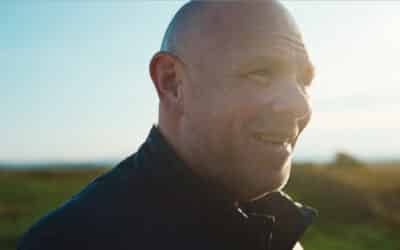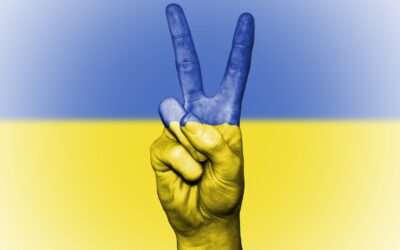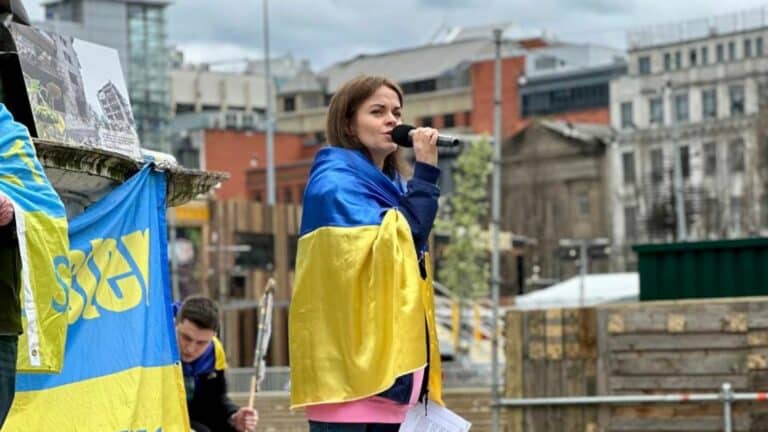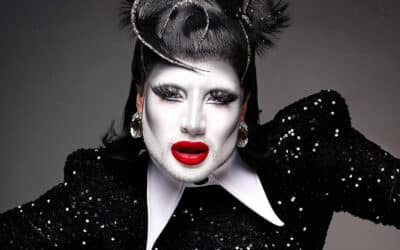As Russia launched its full-scale invasion of Ukraine back in February 2022, missiles rained down and air raid sirens blared out across the country.
It was a dark time many Ukrainians will never forget, especially for film director Alyona Kaporina.
“I remember it very well,” Kaporina tells Prolific North. “It was an ugly day.”
Travelling by train to Ivano-Frankisk from Kyiv with some friends, it was set to be a fun-filled day filming a group of teenagers and their quest for love.
Suddenly, the speculation around Russia’s pending invasion of Ukraine was no longer just a fear. As the news broke on their phones and alerts wailed, it was soon to become a stark reality they’d be forced to endure over the coming months and years.
“Before that day, my friends discussed the possibility of the war. I was sure that it wasn’t possible, I was so sure that ordinary Russians wouldn’t agree with this war. So I was really shocked. I couldn’t believe it.”
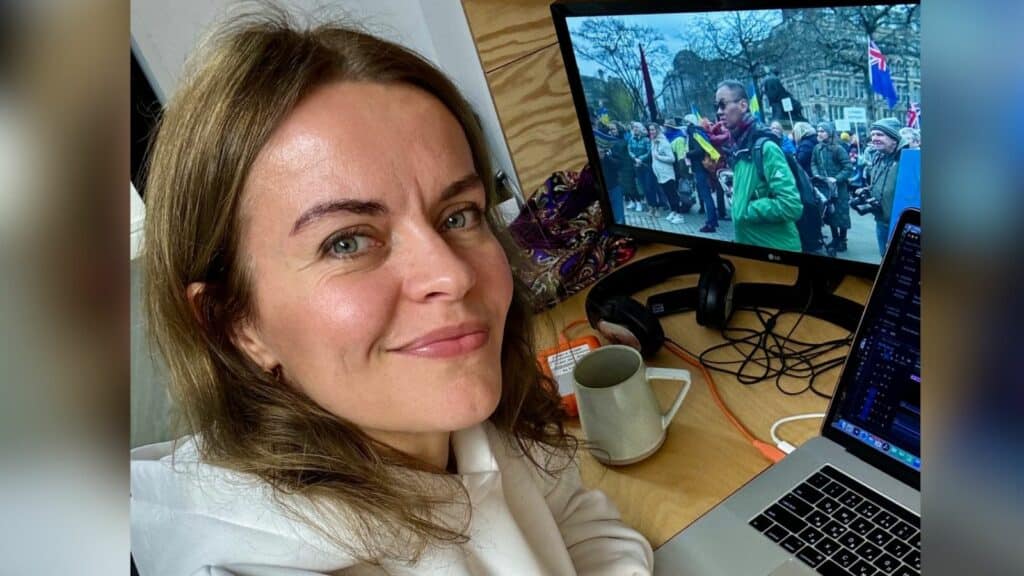
Plans for the feature film dissipated as Russian ground forces and tanks crossed into Ukraine.
“I forgot I was a director very quickly on the day of the full-scale invasion,” she reflects.
As the days rumbled on, she was forced to put her career to one side and took up work as a volunteer instead.
“I felt full of energy but this energy was only for surviving, helping other people and helping our country. I forgot about directing and about making movies. I was frozen inside.”
In the midst of war, and after splitting with her now ex-husband in May, relatives back in Manchester urged her to apply for the UK’s Homes for Ukraine scheme. Reluctantly, she moved to Manchester that same month.
“When I arrived in Manchester, the situation didn’t change. I was frozen inside,” she explains. Unable to find any inspiration for filmmaking, her attention turned towards finding a job and learning to speak English.
“The worst thing was the loss of inspiration,” she says. “I felt dead inside.”
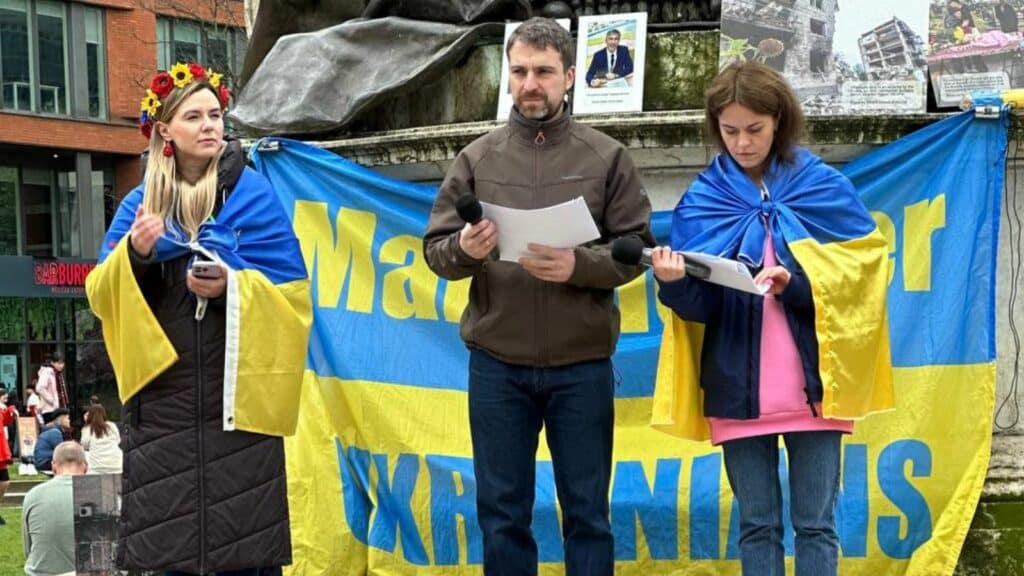
Despite missing her homeland, she was grateful to her two hosts – Ekaterina and Yuriy – who took her hiking and on visits to other cities. Soon, she was immersed in the Ukrainian community in Manchester and attended weekly rallies.
“It was a very stressful time for me”
After taking up classes at an English school, she translated her CV and cover letter, and applied to dozens of production and film companies across the city.
The only response she received was from Chief, a TV and advertising production company in Manchester. The evening before her interview, she prepared by writing up and translating what she planned to say.
Despite struggling with English at the time, after meeting with Colin Offland, the owner of Chief, he took a chance on her and offered work as a runner for upcoming shoots.
“I was really happy because I really didn’t speak English but found a job in the film and TV industry at Chief. It was an opportunity to improve not only my English but my professional skills too.”
Three months later, they asked how she felt about making a short documentary.
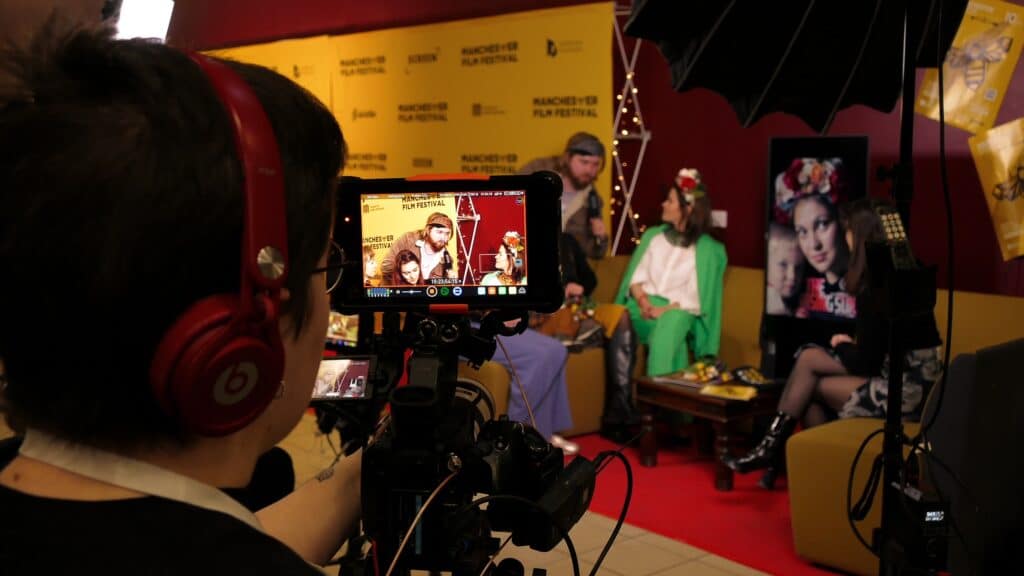
“I was so excited but so scared at the same time because I realised how rare it is to have huge opportunity to make something with a British production company.”
Still “frozen” inside and lacking inspiration, she struggled to come up with any ideas or concepts for the film at first.
“It was a very stressful time for me because I thought about it every day.”
Soon enough, she stumbled on a story. As an active campaigner at Ukrainian rallies in Manchester, she met Ukrainian mother Yana. Yana tragically lost her husband during the early days of the war and had fled with her young son to Manchester.
After suggesting the idea to Chief, what started out as a short film transformed into a feature-length documentary film.
For seven months, she says Chief was “very supportive” and gave her the time and space to work on the documentary.
It paved the way for her to create The Rising Sun, a documentary film following Yana’s story that also navigated the uncertainty and struggles many Ukrainians face when trying to rebuild their lives in a new country after fleeing the war.
“It’s just one story out of millions, there are so many lives destroyed by war,” she explains. “Right now, I know many Ukrainian girls and women, including my close friends who have lost husbands. It’s terrible.”
The Rising Sun went on to win the Best Documentary award at Manchester Film Festival recently. On receiving the accolade, she says she was “shocked”.
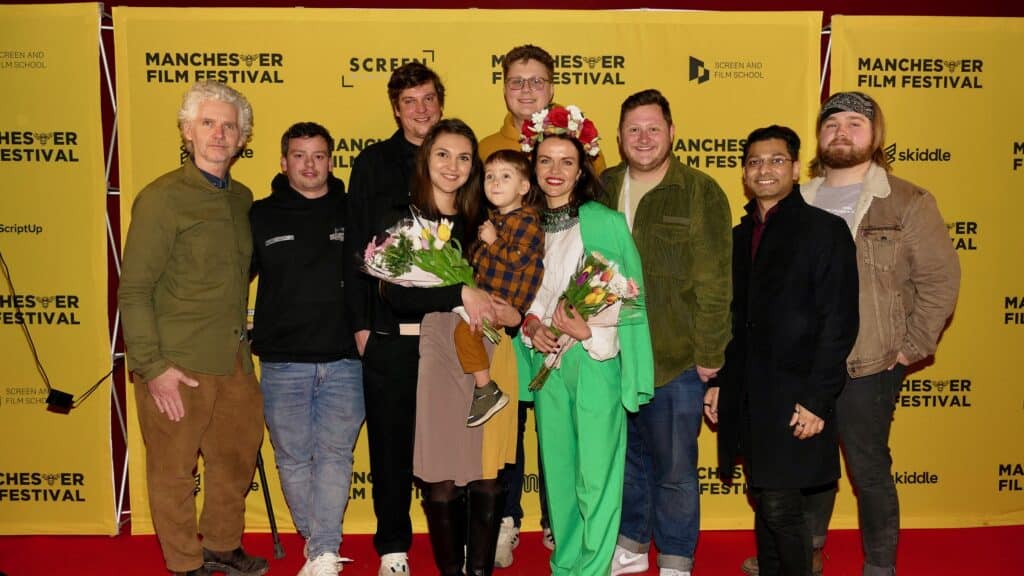
“It really is a big achievement for me because I’m a refugee, I didn’t speak English and tried to do something to survive in a new country without family. I made something and won a very big award. It’s huge for me.”
Despite chuckling about the often miserable weather in Manchester, which she describes as an “industrial Venice”, she’s grateful to the opportunities in the city.
“You can be whoever you want, do what you want and achieve things. It’s really very cool.”
But two years on from Russia’s deadly war in Ukraine, like many, she’s unsure of what the future holds.
“I have no idea of what can happen in the future, next month or the next year,” she says.
“I would like to return to Ukraine one day, because it’s my home and is the best city for me. But not everything depends on me.”

